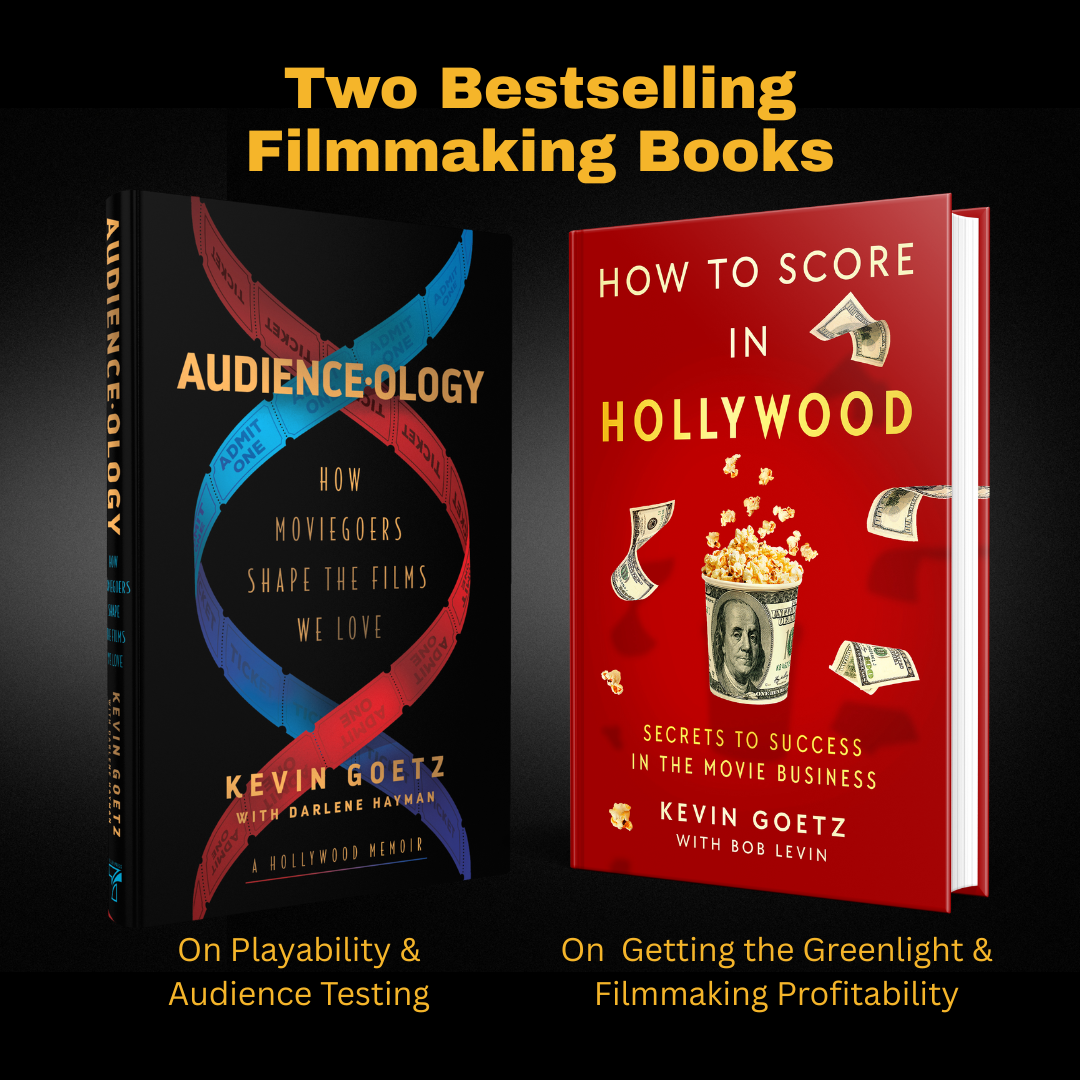
Don’t Kill the Messenger welcomes director, screenwriter, producer, and actor Eli Roth.
Host and entertainment research expert Kevin Goetz sits down with acclaimed filmmaker Eli Roth in the latest episode of Don’t Kill the Messenger. Eli burst onto the scene in 2002 with his indie horror hit Cabin Fever and cemented his reputation with the extremely profitable Hostel films. Known for his intense horror style and flair for marketing, Eli has built a hugely successful directing career. His latest film, the holiday slasher Thanksgiving, was released last year by Sony Pictures. Kevin and Eli have worked closely together using test screenings to hone Eli’s movies. Their rapport is on full display as they delve deep into Eli’s creative process, his career ups and downs, and the vital role testing feedback plays in the final films you see in theaters.
On Getting His Start in Filmmaking as a Kid
Eli became interested in film at a young age after seeing movies like Pinocchio, Star Wars, and Alien. He started making short films as a kid with help from a mentor. By age 11 he was making animated shorts, stop-motion films, and horror movies with his brothers and friends.
“In fifth grade, I remember doing a retrospective. I brought in the projector and set it up and my teacher and the kids in the class were just like, what? Like, this is what you do? And then my dad got one of the first-generation VHS cameras and then the other camera, it was like the thing where you have half the VCR and the giant camera. It looked like a news reporter-size camera. And I would start shooting horror movies. The first one was Splatter on the Linoleum where we’re like taking a chainsaw, holding the saw and the ketchup bottle…”
On Learning from Odd Jobs in Hollywood
“Everybody’s like, I watch movies, I can be a director. And I’ve always said, you know, you’ve got to get onset experience. You have to. You have no idea what actually happens or how to make a movie.”
“I remember learning that on Quiz Show. Like I’m their first one there loading the trucks at five in the morning, last one till 11:30 at night. Being like, what else do you need? What else? Okay great. You need me here at five. See you tomorrow. Nothing, no questions asked. Done. If you asked me, it was done.”
On Working with Quentin Tarantino
“Quentin loved Cabin Fever and he read Hostel. He’s like, this is good, but it can be better. And he sat down with me and we went through it and he is like, okay, if you and I were in this situation, he’s like, some of this feels like movie convenience. I’m gonna call bullshit. He’s like, this guy doesn’t know how to shoot a gun. How, what would he do? Like how would you get out of it? Those kind of details.”
On His Directing Style and Using One Camera
Eli prefers shooting with one camera whenever possible to control lighting and acting, unlike the multi-camera TV style. He credits this technique with helping actors give their best performances.
“The actor acts differently when you take the time to move the camera this close and light it. They’re like, oh yeah, this is a director who gets it, they’re moving the camera close to me and they’re not just trying to spray it down and cover it. They’re like, oh, this director gets it. I’m gonna look good. And they’re bringing it for me so I’m gonna bring it for them and I’m bringing it for the audience because I know they’re taking the time to really light a proper closeup.”
On Learning to Appreciate Test Screenings
“On Hostel, we could tell the ending was like so shocking and Clint Culpepper’s like, look, the movie is testing low and I get it, but I think the people want a more cathartic ending. So he goes, so here’s what I’ll do. Why don’t we reshoot another ending that I want to do and we’ll test them side by side. And I was like, okay.”
“I was like, but I’m not gonna shoot a bullshit version in case I wind up with it. I was like, if you’re ever offered the chance to do a reshoot, don’t shoot the bullshit version. Make it great, ’cause you very well might wind up with it.”
On Pivotal Moments from Testing Thanksgiving
Eli details his experience testing Thanksgiving and learning from audience feedback to hone the right tone, pacing, and violence level. He trimmed 15 minutes after the first test screening based on feedback. Eli says he has come to value test screening input thanks to insights from Kevin.
“By the end we had a kill. And you think like, oh this will make it better. I’m gonna, you know, I’m shooting it going, this will be brutal. The makeup is amazing. It’s so, but you could feel the air get sucked out of the room because people are having fun, having fun. And then they felt like they got punched in the gut.”
“Like they felt sucker punched. The movie did not recover from that. It went suddenly to a place of sadism that nobody was there for and nobody wanted. And I hadn’t properly addressed that.”
On Working with Kevin
“It’s just your ability to understand, to read the data. It’s you, it’s your sensibility, it’s your passion for movies, but you want the filmmaker and the studio to win. You want the movie to work better and not just in a this better make money kind of way. Just in like, this is what the audience is completely missing from your movie. And it’s all there if you just focus on that. So, I would say to any filmmakers, if you test first, if you’re lucky enough to get Kevin, you’re in amazing hands.”
This fascinating conversation gives rare insight into Eli Roth’s unique directorial vision and his journey to becoming one of Hollywood’s most successful horror filmmakers. Eli’s passion for the genre and gift for understanding audiences have been instrumental in crafting crowd-pleasing terror. His embrace of the test screening process, utilizing Kevin’s expert analysis, demonstrates Eli’s dedication to giving viewers the best experience possible.
For the full conversation, check out the podcast episode here. And let us know your thoughts on Eli Roth and his movies in the comments!
Don’t Kill the Messenger, hosted by movie and entertainment research expert Kevin Goetz, brings his book Audienceology to life. This bi-monthly podcast takes a peek behind the filmmaking curtain as Kevin talks with famous filmmakers, studio executives, stars, and other creatives about movies, filmmaking, audience test screenings, and much more.
For more information about Eli Roth:
Instagram: https://www.instagram.com/realeliroth/
Wikipedia: https://en.wikipedia.org/wiki/Eli_Roth
IMDB: https://www.imdb.com/name/nm0744834/
For more information about Kevin Goetz:
Website: www.KevinGoetz360.com
Audienceology Book: https://www.simonandschuster.com/books/Audience-ology/Kevin-Goetz/9781982186678
Facebook, Twitter, Instagram: @KevinGoetz360
Linked In @Kevin Goetz
Screen Engine/ASI Website: www.ScreenEngineASI.com






